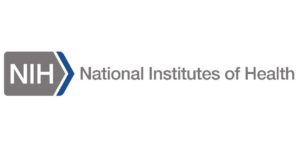The National Institutes of Health (NIH) is the principal US government agency for biomedical and public health research. The agency’s genesis began in 1887 with the establishment of a one-room laboratory in Stapleton, New York. From this lab, Marine Hospital Service (the precursor to the Public Health Service agency) workers, examined incoming ship passengers for infectious disease symptoms in an effort to prevent epidemics. After several iterations over the decades, the agency became the NIH in 1930. It is now headquartered in Bethesda, Maryland.
The NIH oversees the National Library of Medicine (NLM) –the world’s largest medical library– and its online medical database, MEDLINE. MEDLINE offers public access to thousands of peer-reviewed scientific resources on psychedelics through the NLM’s free online search engine, PubMed. Clinicaltrials.gov, a database of publicly and privately funded medical studies, is also managed by the NLM. Among the NIH’s other institutes is the National Institute of Drug Abuse (NIDA) and the National Institute of Mental Health. NIDA’s most recent Research Report Series on hallucinogens was published in 2015. It includes little mention of a third wave of psychedelic clinical research into its therapeutic applications. NIDA also publishes DrugFacts, an article series providing information on various substances including hallucinogens.
The United States’ history of political caution toward psychoactive drugs and subsequent restrictions on psychedelic research has restrained NIH investment in psychedelic medicine. More recently, however, there are indications that the agency may be shifting its stance.
On June 13, 2019, NIH Director Dr. Francis Collins and former FDA Commissioner Dr. Scott Gottlieb replied to an inquiry by US Senator Brian Schatz about the agencies’ recent psychedelic research efforts. Their letter mentions NIMH (National Institute of Mental Health) funding of clinical ketamine research and basic research on psychoactive drugs like LSD, as well as NIDA funding of ibogaine and related compounds to treat addiction. Dr. Collins and Dr. Gottlieb also stated that more research is needed regarding the efficacy and long-term safety of psychedelic treatments. While they reiterated “a high potential for abuse” as the reason for psilocybin, LSD, MDMA, and related substances’ scheduling, they also acknowledged that approval for therapeutic use could lead to the drugs’ rescheduling. A Psychedelic Science Review article summarized the officials’ correspondence. That December, psychedelic researcher Dr. Roland Griffiths of Johns Hopkins was invited by NIMH to speak about his work.
In May 2020, psychedelic pharmaceutical startup CaaMTech led by Dr. Andrew Chadeayne announced a partnership with NIDA’s Designer Drug Research Unit (DDRU). The collaboration, which Psychedelic Science Review covered, aims to thoroughly investigate the pharmacology of new psychoactive substances.
Weeks later, Dr. Collins spoke about psychedelics’ treatment potential during a Senate budget hearing. His testimony addressed recent clinical trials with MDMA, LSD, and psilocybin, acknowledging the recent legitimization of psychedelic research. He stated, “I think as we’ve learned more about how the brain works we began to realize that these are potential tools for research purposes and might be clinically beneficial.” He also mentioned discussions among leadership at NIH, NIDA, and NIMH to develop a collective approach toward the “next generation of clinical trials to see where these provide benefits – going beyond depression to such things as PTSD.” Dr. Collins also recommended rescheduling cannabis to progress research on its medical applications.
In June 2021, psychiatrist Brian Barnett, MAPS Founder and Executive Director Rick Doblin, and psychiatrist and author Julie Holland penned an Op-Ed in science outlet STAT urging NIH to “make [its] mark on the renaissance of medicinal psychedelics.” The authors write,
The NIH’s absence from investment in psychedelic medicine is unfortunate since it is preventing talented researchers from entering the field and possibly slowing the development of urgently needed innovative treatments.
They argued that through funding of psychedelic research, NIH could facilitate the entry of talented scientists into the field and supercharge mental health treatment efforts.
